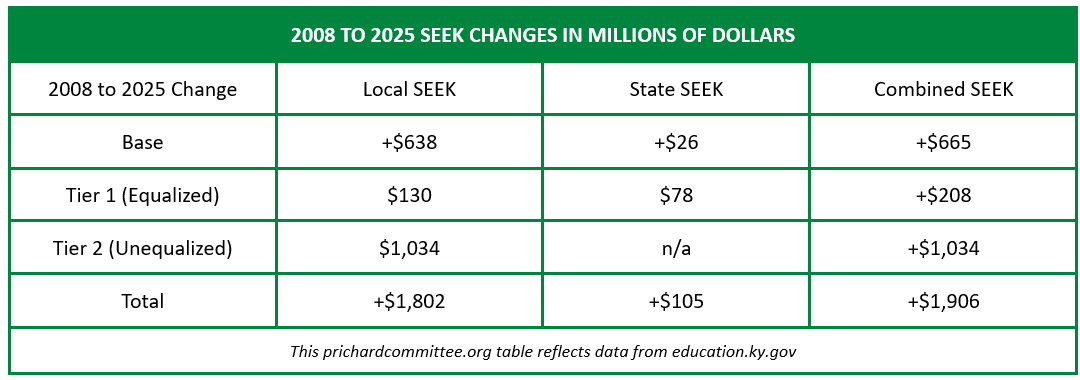Kentucky’s young children and their families benefit from high-quality early learning that keeps each and every child on a path toward proficiency in reading and mathematics by the end of the third grade. It is imperative to increase the number of infants, toddlers, and preschool children from low-income families enrolled in high-quality child care and public preschool through policies, practices, and funding that sustain quality early learning environments.

Kentucky’s young children and their families benefit from high-quality early learning that keeps every child on a path toward proficiency in reading and mathematics by the end of the third grade. Research demonstrates that learning begins early and high-quality early learning impacts long-term outcomes for students.
- Cognitive skill development begins early and rapidly. The Toddler Brain by Laura A. Jana, M.D. indicates that 85-90% of brain development occurs before the age of 5.
- Research also shows children who participate in high-quality preschool programs are 40 percent less likely to drop out of school and 50 percent less likely to be placed in special education.
Investments in high-quality early childhood make business sense – by the numbers – and also provide opportunities for families to access the workforce.
- 12.6% of Kentucky families with young children report having difficulty holding down a job because of a lack of affordable childcare according to the National Survey of Children’s Health.
- Lack of childcare “costs businesses over $3 billion a year” according to the S. Chamber of Commerce Foundation.
What’s more, the investments in high-quality early childhood education are not only a solution for reducing achievement gaps and improving academic performance but pay long-term dividends to society as a whole. These benefits include reduced need for special education, higher rates of educational attainment, a reduction in health costs, a reduction in the incidence of crime, and less demand for social welfare services.
- Early Childhood – Returns $5 for every $1 invested. – Cost-benefit analyses conducted by the Center for Business and Economic Research (CBER) at the University of Kentucky in 2009 estimated that investment by Kentucky in expanded early childhood education would yield a return of $5 in public and private benefits for every $1 of public investment. Other research from across the country finds the cost-benefit ratio of investing in early childhood ranging from $2:1 to $10:1.
- Kentucky ranks 41st in the nation in the number of three- and four-year olds enrolled in preschool.
- In 2017, only 50% of incoming kindergarten students scored “prepared” on the BRIGANCE screener. Half of Kentucky’s children are starting behind, and achievement gaps seen later in school begin early. Readiness rates are far lower for Hispanic students, English-language learners, students with learning differences, and students from families with low income.
- More than half (53% or 170,000) of Kentucky’s children live under 200% of the federal poverty level, the income necessary to meet basic needs of food, housing, health care, child care, and transportation. Yet our child care assistance program only serves families at or below 160% and currently only serves 27,000 children.
Many Kentucky children who most need the foundation of high-quality early learning do not have the opportunity due to cost and/or a lack of high-quality programs in their area. To build a strong future for Kentucky, the best economic investment we can make is in early education that gives all students a strong foundation.
The evidence is clear – a high-quality early childhood environment “can enhance children’s development, reduce achievement gaps at kindergarten entry, and even have long-term benefits in school and beyond.”
Kentucky needs greater commitment from policymakers to make the critical investments necessary, as well as greater commitment from communities to find new ways to deliver the highest quality early childhood programs. Specific steps the state can take to support a high-quality early childhood education system for all kids include:
Increasing eligibility level and investment in high-quality, full-day early learning environments – both preschool and childcare – and incentivize public-private partnerships.
- This builds learning that is the foundation for future success and helps families enter and stay in the workforce.
Supporting family engagement and maternal and child well-being through sustained investment in HANDS home visiting program.
- This shares the importance and impact of early childhood education and supports health and development in the earliest years.












